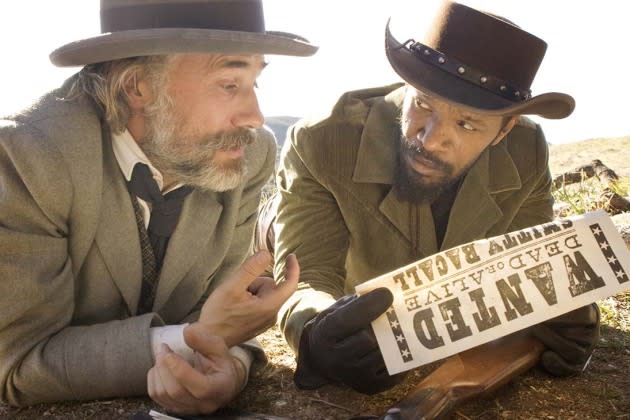Lionsgate Discloses Price Tag for Spyglass Media Deal

As Lionsgate’s top brass decides what type of spinoff or sale to consider for its premium cable brand Starz, the company disclosed on Friday a price tag for a film library and stake deal it made in 2021.
Lionsgate agreed to pay $191.4 million for 200 films and an 18.9 percent preferred equity interest in the Gary Barber-run production firm Spyglass Media Company, the conglomerate disclosed in its 10-K report filed with the Securities and Exchange Commission on Friday. Lionsgate said a $171.4 million payment was made last year, with installments of $10 million set aside to be paid in 2022 and 2023.
More from The Hollywood Reporter
The Jon Feltheimer-run Lionsgate first revealed the deal for the stake in Spyglass, led by former MGM chief Barber, in July 2021. As part of the agreement, Lionsgate acquired 200 titles from Spyglass, including Paddington, Fruitvale Station, The Kings Speech and Silver Linings Playbook, as well as Quentin Tarantino titles Inglourious Basterds, Django Unchained and The Hateful Eight. (Those movies were all Weinstein Co. titles that Spyglass had picked up in 2018 after that company declared bankruptcy.) Lionsgate added those features to its 17,000-title film and television library, which drove $749 million in total revenue for the last twelve months.
Spyglass Media also co-produced 2022’s Scream, which grossed $140 million globally, with Paramount, and has partnered with the studio on the next installment of that franchise as well. Other Spyglass financial backers include Warner Bros. and exhibition giant Cineworld.
Lionsgate, in its quarterly earnings disclosure on Aug. 4, saw a net loss attributed to shareholders of $119 million, compared to $45 million in the same period of last year and overall revenue declined to $893.9 million. Since Jan. 3, the first day of trading this year, the company’s stock has fallen about 39 percent.
On its earnings call, CEO Feltheimer was asked whether value of the Lionsgate library was around an estimated $3 billion-$4 billion. “We’re filling the pipeline with a lot of content, the more renewals we get, particularly in the television business, the more valuable that content is,” Feltheimer responded, noting that much of the library is scripted and premium, which is in demand from buyers.
“When you see a lot of the big streamers obviously moving into new territories, they need a lot of content. And, frankly, it’s expensive to make new content,” the executive said, in a nod to the idea that buyers in a “recessionary environment” would look to license its film and TV shows because it’s a cheaper way to fill their coffers with content.
Lionsgate execs also confirmed on Aug. 4 that the firm is still listening to offers for Starz, which has 26.3 million global streaming subscribers, as well as “broader” offers. “The structure that we’re considering has become broader,” Lionsgate vice-chairman Michael Burns said. “And even in a separation, some of our potential partners have expressed interest in both the studio and Starz and, as always, our priority is to create significant shareholder value.”

 Yahoo News
Yahoo News 